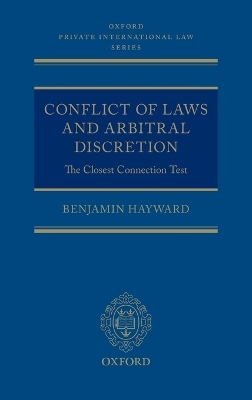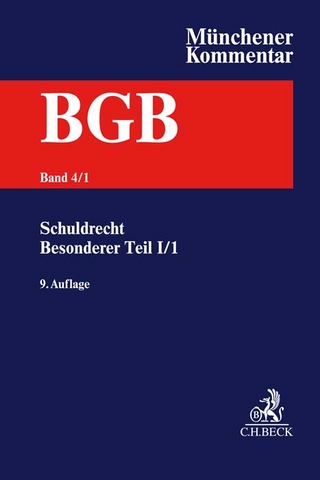
Conflict of Laws and Arbitral Discretion
Oxford University Press (Verlag)
978-0-19-878744-0 (ISBN)
Arbitration is the dispute resolution method of choice in international commerce, but it rests on a complex legal foundation. In many international commercial contracts, the parties will choose the law governing any future disputes. However, where the parties do not choose a governing law, the prevailing approach in arbitration is to afford arbitrators broad and largely unfettered discretion to choose the law considered most appropriate or most applicable. The uncertainty resulting from this discretion potentially affects the parties' rights and obligations, the performance of their contract, the presentation of their cases, and negotiations undertaken to settle their disputes.
In this text, Dr Benjamin Hayward critically reviews the prevailing approach to the conflict of laws in international commercial arbitration. The text adopts a focused and detail-oriented analysis - being based on a study of more than 130 sets of arbitral laws and rules from around the world, and drawing heavily on arbitral case law. Nevertheless, it remains both practical and accessible, taking as its focus the needs and expectations of commercial parties, who are the ultimate users of international commercial arbitration.
This text identifies the difficulties that result from resolving conflicts of laws through broad and unconstrained arbitral discretions. It establishes that a bright-line test would be a preferable way to resolve arbitral conflicts of laws. Specifically, it recommends a modified Art. 4 Rome Convention rule as the ideal basis for law reform in this area of arbitral procedure.
Dr Benjamin Hayward is a Senior Lecturer in the Department of Business Law and Taxation, Monash Business School, at Monash University. Dr Hayward's teaching and research is focused on international commercial law, particularly international commercial arbitration law and the international sale of goods, and he has previously published in both areas. His teaching and research work has been recognized by the receipt of six university awards since 2010. Dr Hayward has presented his work at seminars and conferences both in Australia and internationally and he has a particular interest in the interactions and applications of law in international commercial arbitration.
1: Introduction and Context
2: The Current Regulation of Conflicts of Laws in International Commercial Arbitration
3: Identified Issues in the Current Regulatory Regime
4: A Proposed Solution: A Bright-Line Test
5: A Proposed Bright-Line Test: The Closest Connection Test
6: A Proposed Closest Connection Test: The Modified Art. 4 'Rome Convention' Rule
7: Conclusion
| Erscheinungsdatum | 13.01.2017 |
|---|---|
| Reihe/Serie | Oxford Private International Law Series |
| Verlagsort | Oxford |
| Sprache | englisch |
| Maße | 161 x 236 mm |
| Gewicht | 706 g |
| Themenwelt | Recht / Steuern ► EU / Internationales Recht |
| Recht / Steuern ► Privatrecht / Bürgerliches Recht ► Internationales Privatrecht | |
| ISBN-10 | 0-19-878744-8 / 0198787448 |
| ISBN-13 | 978-0-19-878744-0 / 9780198787440 |
| Zustand | Neuware |
| Haben Sie eine Frage zum Produkt? |
aus dem Bereich


